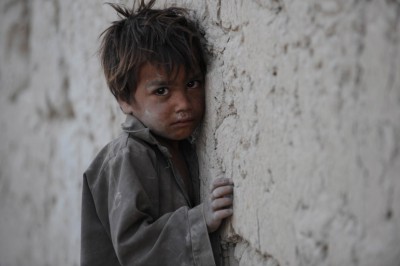
Pakistan’s chronic malnutrition crisis has not improved over the past 40 years, costing the economy an estimated three per cent of GDP per year, making it a graver issue than the energy crisis, whose corresponding figure is two per cent.
These views were expressed by World Bank Senior Nutrition Specialist Luc Laviolette at an orientation session on “Nutrition and Human Rights” at a local hotel on Thursday.
The session, which was organised by the bank in collaboration with the Development Partners for Nutrition, was aimed at increasing civil society organisations’ understanding and knowledge of nutrition, thereby promoting its awareness as a basic human right.
Laviolette said that currently half of Pakistan’s women and children were malnourished, terming the situation worse than in sub-Saharan Africa.
He gave a presentation on ‘Malnutrition in Pakistan — A Silent Emergency’ during which some alarming statistics were shared.
Comparing the findings of the National Nutrition Survey for 2001-02 and 2011, Laviolette said there had been a significant increase in various indicators. During this period, children’s wasting rate had increased from 12 to 15 per cent, the stunting rate from 31 per cent to 44 per cent, anemia from 51 per cent to 63 per cent and vitamin A deficiency from 13 per cent to 54 per cent.

He said over 1.5 million children in Pakistan were currently suffering from acute malnutrition, which made them vulnerable to fatal diseases. All citizens should have access to adequate quantity and quality of food, he added.
“Malnutrition makes children prone to acquiring communicable diseases like measles and reduces the effectiveness of certain vaccinations, said Laviolette.
If this issue was not overcome, Pakistan risked suffering from a “demographic nightmare” — or an unskilled, economically unproductive population — rather than the “demographic dividend” which has powered its neighbour’s growing prosperity, he said.
Save the Children Pakistan Advocacy and Campaigns Senior Manager Arshad Mahmood said that the Constitution under Article 38 recognised the right of access to food, mandating that “the state shall provide the basic necessities of life, namely food, clothing, housing, education and medical relief.”
The mandate was not being followed by the authorities, which was a clear violation of human rights, said Mahmood.
“More than 350,000 children die before their fifth birthday every year; 35 per cent of these deaths are due to malnutrition,” he added.
Mahmood stressed on the need to engage parliamentarians at both the federal and provincial levels to tackle the issue. He called for sustained advocacy to implement the Protection of Breastfeeding law at both levels, and urged all media outlets to increase their coverage of nutrition.
He said educating citizens on the differences between a healthy and unhealthy diet was another measure that could be taken to safeguard the country’s future generation from the malaise.
Micronutrient Initiative Director Dr Tausif Akhtar Janjua lamented that nutrition was always considered as an extension of the broader category of health, and as a result was never prioritised as an issue.
Published in The Express Tribune, May 24th, 2013.
COMMENTS (9)
Comments are moderated and generally will be posted if they are on-topic and not abusive.
For more information, please see our Comments FAQ







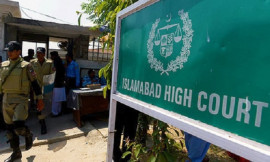
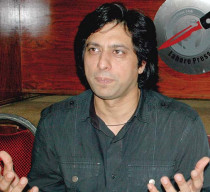

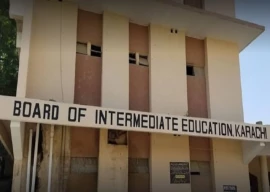

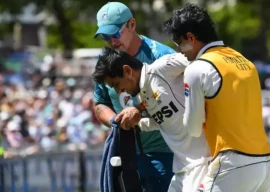
1732012115-0/Untitled-design-(14)1732012115-0-270x192.webp)
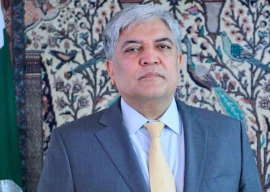








@Bluth Agree with the fact that healthier women can produce milk, but at the same time good health also has roots to birth spacing as well, which contributes to the health of both mother and the child. But we all have to agree with the fact that government does have to ensure food security as well as the implementation of policies and especially the ones currently in place. If we can bring Malnutrition and allocation of funds for the nutrition programmes of the government we can definitely make a difference.
Also the strong adoption & implementation of "The Protection of Breastfeeding and Young Child Nutrition Ordinance 2002" will help pave way for our communities and government to jointly move towards a more nutritioned future of Pakistan.
@Maha: Breast feeding is the healthiest when the woman herself has a healthy eating habit. You can't produce enough milk when you are malnutritied yourself. Malnutrition mainly comes from the fact that they can't afford even the basic need, food and water, That too above shelter and nice clean clothes. Funny how countless number of couples are having trouble conceiving and there are so many children dying every day in Pakistan. If the parents can't afford providing food and shelter, government should have a good system of either paying some relief to the poor families for raising themselves, a fair food distribution system, or have a social awareness of adoption so the children can be taken in by many who can afford them but don't have any of their own.
Unfortunately, the nutrition has not been priority area of past governments. Pakistan is currently suffering from acute crisis of malnutrition which makes children susceptible to infectious diseases and may even lead to death. Long term (chronic) malnutrition is witnessed in half of Pakistan’s children which undermine their brain development and immune systems impaired, with life-long consequences. According to Institute of Public Policy Report, the current malnutrition crisis in Pakistan has been estimated to cost the economy 3% of GDP per year. We hope that upcoming federal and provincial governments will take serious measures to overcome the issue of malnutrition at emergency basis.
Agree but at the same time don't you think that people should be aware about their rights and there is aa absolute need to work at the grass rout level. Also we can not neglect the simple solutions of tackling malnutrition at community level @S.I. Khan:
We are a dead nation,i am sure no one has even tried to look at the above photograph to know about this deprived child....what a shame !! Will it be too much if one requests the ET to send the where a-bouts of this child through e-mail.
“Educate people, respect constitution to overcome malaise” How far we are to meet this reality? Let us begin with an unequivocal assertion: proper nutrition and health are fundamental human rights. What does this mean? What are the primary links between nutrition and health seen from a human-rights perspective? The answer is very simple which is revealed in a recently published report titled as “State of the World’s Mothers Report-Surviving the First Day”. Which states that in Pakistan annually 352,400 under 5 deaths occurs. Out of this distressing figure 35% of deaths occur due to deficiency of nutrition. This is something very interesting information for me that every citizen of Pakistan has a constitutional right to adequate food-(Article 38).
When it comes to “what needs to be done” than Sehrish Wasif, you have rightly mentioned that “Educate people, respect constitution to overcome malaise”. This will be a two way process. Firstly, people needs to be aware about their fundamental constitutional right and secondly, The GoP who have recently joined the Scaling Up Nutrition initiative, should make sure for the implementation of this SUN initiative. Provincial health departments should integrate the National Nutrition Programme, into their development plans and should allocate adequate funding to ensure their implementation. The government should expand the role for LHWs to carry out assessment and response to malnutrition at community level, and should be implementing the CMAM and infant and young child feeding (IYCF) guidelines.
It is a know fact that breast milk strengthens a child’s immune system, yet only 37% of children in Pakistan are exclusively breastfed for six months. It has a strong impact on both reducing malnutrition and protecting children in their first 28 days and beyond. Media plays a really important role in molding people's perceptions and I think media should take up the resposibility of creating awareness and stop promoting breastmilk subsitutues altogether.
The report is indeed a good synopsis of the situation, however it also gives a bleak picture of the state of children and mothers due to Malnutrition. This has been on the agenda of the Civil society but unfortunately not on the government. The refined Pakistan should take this issue on board and as one speaker said that energy crisis are affecting 2% of GDP but Malnutrition is 3% of the GDP making it a dire need and NOW the government should seriously consider investing in the subject if it is to save the future of this country.
Having seen the above photograph of the child one has cried.What to talk about school,he should, if not descent,but at least be wearing clean clothes.Now imagine about his diet,water & shelter. President Zia ul Haq is on record,when he imposed mandatory Zakaat on bank accounts,and announced that there would not be a single beggar on the streets of Pakistan & Zakaat collected would be spent on the welfare of such needy people.What happened then, even during his time till today, Zakaat money is being used to gain political mileage by all successive governments,hence misuse.More people are, today, living below poverty line than ever.Will Mr. Nawaz Sharif Look into this matter as well ??